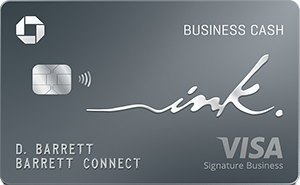You might be a small business owner and not even know it
Updated 7:21 p.m. UTC April 4, 2024
Editorial Note: Blueprint may earn a commission from affiliate partner links featured here on our site. This commission does not influence our editors' opinions or evaluations. Please view our full advertiser disclosure policy.

ozgurdonmaz, Getty Images
It’s impossible to look for a new credit card without noticing that many of the best products are designed for small business owners. Many people focus on consumer credit cards, as they don’t believe they can qualify for these small business credit cards. However, many Americans are actually small business owners, even if they don’t realize it.
You are a business owner if you earn income outside of a W-2 job, and this includes a side hustle. A recent study by PYMNTS and Lending Club indicated that half of all working Americans have some sort of side hustle. This means that around 100 million Americans could be operating a small business of some kind.
What is a small business?
Broadly speaking, a small business owner is someone who generates revenue outside of an employer. So, if you make money outside of a W-2 job, you have a business and can apply for a business credit card.
The U.S. Small Business Administration (SBA) defines a small business as a company with fewer than 500 employees. While many small business owners choose to file paperwork as a Limited Liability Corporation (LLC) or as some other type of corporation, many do not.
If you work by yourself to generate revenue outside of employment, and you haven’t incorporated it, the best term to describe your small business is an unincorporated sole proprietorship. That’s a fancy-sounding way to describe many relatively modest businesses. These businesses can include babysitting, dog walking, selling goods online or owning an investment property.
Others might work as independent contractors driving for a food or package delivery service or rideshare company. And, of course, freelance writers like myself are also small business owners.
Can all small business owners be approved for a small business credit card?
If you have a small business, you are eligible for a business credit card.
That said, approval will depend on a number of factors, just like it does when applying for a personal credit card. Issuers will take into account your personal credit history as well as your business details when considering your application.
While it helps to have good personal credit, limited personal credit history does not necessarily exclude you from getting a small business credit card. You can still get a business card with fair credit or even no credit, and there are secured cards for small business owners.
If you’d rather keep your personal credit out of your business credit card application, you can apply for a business card with just an Employer Identification Number (EIN), although this process can be difficult as most issuers prefer a personal guarantee.
Some credit card issuers encourage you to apply for a small business credit card even before you start your business. That way, you can use your card to pay for all of your business’s startup expenses. You can apply for a small business card as soon as you decide to create your small business.
In fact, using your personal credit card for business transactions may be against your personal credit card’s terms and conditions.
What are the advantages of small business credit cards?
The main purpose of a small business credit card is to separate personal charges from company expenses, otherwise, small business credit cards are much like consumer cards, with a few notable exceptions:
- Robust expense tracking and reporting features to make bookkeeping and tax preparation easier.
- Elevated rewards rates for common business expenses, like office supplies, shipping and advertising.
- Higher credit limits than personal credit cards to boost your buying power.
- Builds your business credit score to help with future credit applications.
How to be approved for a small business credit card
Applying for a small business credit card will be much like applying for a personal card. You’ll be asked for information such as:
- Your name
- Your Social Security number (SSN)
- Your contact information
- Business legal name
- Business address
- Business phone number
- Legal structure (e.g., sole proprietor, LLC or S-Corp)
- Employer Identification Number (if you have one)
- Industry
- Number of employees
You may also be asked for your annual business revenue, which you can put as $0 if you’re just getting started, and an estimate of how much you’ll spend on the card each month.
Bottom line
The mention of small businesses tends to make people think of companies like retail stores and doctor’s offices, but the actual definition is much broader than most people think. Tens of millions of Americans earn income outside of their primary employment without realizing that this actually makes them small business owners.
Understanding the definition of a small business and what it includes can help you decide if you meet that criteria and are eligible for a small business credit card.
Blueprint is an independent publisher and comparison service, not an investment advisor. The information provided is for educational purposes only and we encourage you to seek personalized advice from qualified professionals regarding specific financial decisions. Past performance is not indicative of future results.
Blueprint has an advertiser disclosure policy. The opinions, analyses, reviews or recommendations expressed in this article are those of the Blueprint editorial staff alone. Blueprint adheres to strict editorial integrity standards. The information is accurate as of the publish date, but always check the provider’s website for the most current information.


















